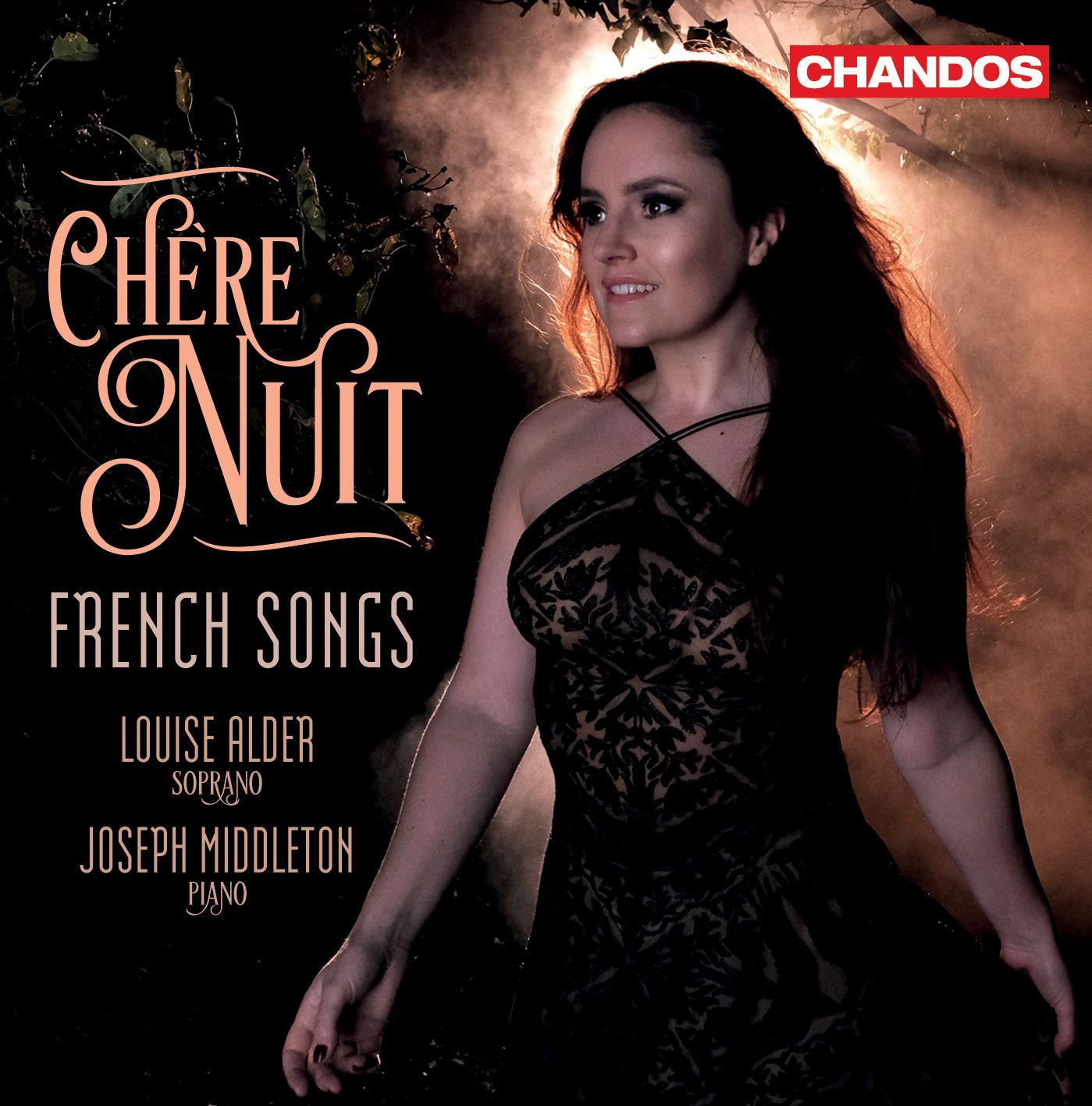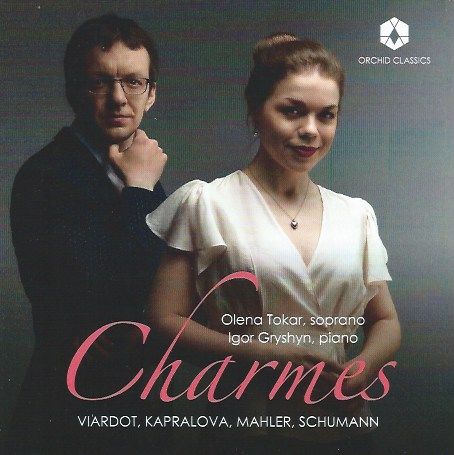Chère Nuit: French Songs from Louise Alder and Joseph Middleton
Louise Alder herself describes this programme as "wildly varied"; she has also said that she hopes that the album paints "pictures of a French evening, of mystery, intrigue, discovery, seduction, love, and blissful night"

We've met both of these artists before, Louise Alder in a fabulous disc of Richard Strauss on Linn, and Joseph Middleton on a BIS disc with James Newby, I wonder as I wander. Wonderful to have them together in this fabulous programme.
Louise Alder herself describes this programme as "wildly varied"; she has also said that she hopes that the album paints "pictures of a French evening, of mystery, intrigue, discovery, seduction, love, and blissful night". Alder and Middleton perfectly capture the ambience of a French soirée, of intimate performance of these songs by Ravel, Messiaen, Debussy, Pauline Viardot, Chaminade, Canteloube, Alfred Bachelet, Poulenc, Satie and Maurice Yvain.
Ravel's Shéhérazade might be more familiar in its version for voice and orchestra, but far from sounding like a reduction, the piano version is an entity in its own right, glowing, fragrant, especially when played like this by Joseph Middleton (interesting side note: the premiere of the orchestral version was conducted by one Alfred Cortot, a famous pianist). Ravel sets texts by the wonderfully named poet Tristan Klingsor (Wagner, anyone?): "Asie," "La flûte enchantée" and "L'Indifférent". The first is a miniature tone-poem for voice, nearly ten minutes in duration, cast in darkest E flat minor, a sound painting of a mysterious Orient seen through French eyes:
The third song, "L'Indifférent," begins with an extended piano passage in which Middleton perfectly sets up the elusive atmosphere:
The name of Olivier Messiaen (1908-92) may bring thoughts of challenging modern music to some, by the composer of the lush Turangalîla-Symphonie was heavily influenced by Debussy early on. And the songs we hear here are indeed early. Dating from 1930, the Trois Mélodies reveal both French Impressionist influence while holding clues to his later style. As such, they offer the ideal, and gentlest, introduction to this composer. Listen to the beautiful "La fiancée perdue" (The lost fiancée):
The three Debussy songs here date from 1882-84. Beauty is taken for granted in Debussy's vocal output; the beauty of Alder's voice and Middleton's carefully modulated piano playing seems the perfect combination. And it is indeed so. Listen to the 1884 song La Romance d'Ariel, to a text by Paul Bourget:
Pauline Viardot (1821-1910) was best known as a singer, initially in Rossini roles. But as a composer she reveals a beautifully tender voice. Listen to this "Havanaise":
Franz Liszt, no less, declared Viardot a composer of genius. There's a rather interesting disc on the Naxos label of works for violin and piano by Pauline Viardot (a Violin Sonatine in A minor) and her son, Paul Viardot (1857-1941: three Violin Sonatas) played by Reto Kuppel and Wolfgang Manz (link below). And, as luck would have it, there' s another disc, released recently (April 2) of more Viardot (coupled with three other female composers: Alma Mahler-Werfel, Clara Schumann and Vitěslava Kaprálová). Alongside pianist Igor Gryshyn, soprano Olena Tokar sings seven Viardot songs (with one overlap: "I am sad"). While the song Golden glow of the Mountain Peaks is beautiful in its simplicity, YouTube gives us only the opportunity to hear the performers in a live account of Viardot's Der Gärtner (The Gardener); the purchase link to the Orchid Classics disc is given below the Spotify panel below:

The Viardot is balanced out on Chère Nuit by three songs by Cécile Chaminade (1857-1944), including the wonderful Ronde d'amour of 1895, with its lovely peal of bells at the opening:
Many will know the name of Joseph Canteloube via his Chants d'Auvergne (Songs of the Auvergne), perhaps particularly the 'Baïlèro' (a shepherds song from the Haute-Auvergne: here's Frederica von Stade as a reminder):
Here from Canteloube, we have the wonderfully light and comedic O up!:
The Chandos disc takes its title from Alfred Bachelet's 1897 song Chère Nuit, a somewhat Wagnerian-tinged offering. langorous, with perhaps parallels with the heady world of the second act of Wagner's Tristan.
.Two offerings by Poulenc, as French as can be, from the 1940s follow: Les Chemins de l'amour and Métamorphoses. But as we're exploring, it's to Satie, that quintessentially eccentric composer, we will turn a fuller attention. Listen to his slinky cabaret waltz, Je te veux (I want you):
Deliciously elliptical even in a cabaret setting, Satie continues to fascinate. But it is the strains of Maurice Yvain (1891-1965) that play us out, Je chante la nuit. Yvain offers a pre-Broadway tune that hangs around in one's head long after Alder and Middleton have finished performing:
The Potton Hall recording is glorious: the playing time a healthy 80 minutes. What's not to like?
